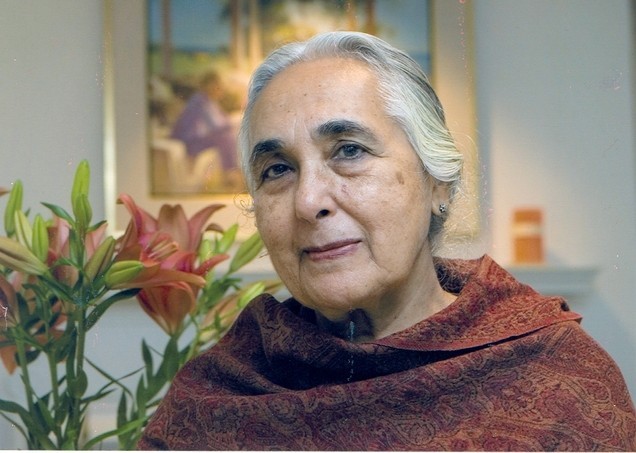A good, wide-ranging interview with Romila Thapar (original link is broken, I am not sure what it was, but this video is around the same time (and i posted another one below this post)
I have no argument with a lot of her history writing or the ideal of the neutral, skeptical, inquiring historian.., as far as it goes. But with Romila ji, something is missing; her own vision of what is India and WHY it is India. After all, we could (and did) have multiple polities in this subcontinent and now have at least 2 that explicitly reject their Indian identity and want to be known as either an entirely new people (“pakistanis”) or as Bengali Muslims who prefer their own country. The rest of the subcontinent remains India. For a historian it must be of interest WHY Pakistan is not Indian, but India is. And for India to be, it has to have an identity. What is that identity? In other words, secular democracy is fine and all, but all secular democracies on the planet today have an identity that is not entirely arbitrary. So India cannot expect to somehow do fine as “Indians who happen to be indian bcz that is how the British left them”… there has to be something more than that.
Now it is frequently said (mostly by her enemies?) that her basic framework is Marxism. But as far as I know, she does not explicitly claim this. Is it? and if she does not like to claim it, why not? And even if it is, there are so many subcults within Marxism by now, we may need to know more specifics.. But anyway, let us assume it is some sort of Marxism, then we shoud note that Marxist Chinese and Marxist Russians ended up with very strong (and expansive) nationalist visions of Russia and China. What is her vision of India? and what is that identity based on (what is “India” in her mind? in her worldview?). Maybe she should lay it out more instead of relying on the understanding and sympathy of others who hold equally vaguely Marxist views?
It is not that she has no clue. I am sure she has many, but she does seem to take its existence for granted. Maybe she thinks it doesnt need to be contested, it is so obvious and clear. But I think she should still put her vision out there. Let us judge how solid it is. Maybe it IS very solid. Maybe it will turn out to be rather thin. Or standing on ground that is more “colonial” than her fans would like to admit? My point is that she seem to assume the liberal secular democratic state exists without its own legitimating narrative or common culture. That seems un-good 🙂
And what about the economy? India did not do well economically under the “generation” Romila ji admires. Some of us think this was due to pseudosocialist interventions; And that her wider circle of supporters and fellow travelers picked the “wrong” economics? does she still think those are the right economics? Maybe she does, but I find that most leftists don’t argue very deeply and firmly about that these days, preferring the easier and more superficial BS about postcolonialism and intersectionality or whatever. This too needs some work..and some discussion.
Anyway, my thought is that she could be right about ALL the factual details of this raja, that monument, that battle…and still have said little that is deep/insightful about how all that evolved into modern India and where it may/will/should evolve next.. That all those kingdoms and Rajahs will not fit into the neat categories and stories of various nationalist or religious parties is hardly a great discovery. In India it is sometimes claimed that Hindutvadis are the main mythmakers about the past, but in reality there are as many mythmakers as there are parties contending. I think she should lay her version out in more detail.
PS: I would prefer a secular democratic liberal Indian state. But even such a state needs a legitimating narrative, , Look at any powerful state: there is a central culture that is in charge and confident of its place (this last thing may not apply fully to all sections of Western academia but still applies far more than “the sky is falling” critics sometimes claim.. though how that may eventually shift is an interesting question) i.e. it presupposes a dominant common culture. Or so I think. Maybe I am wrong. But we may need to debate this more explicitly than she ever does..I am just not sure she has enough to say about the development of that ideal, and the challenges that stand in its way today, in India, in any deep sense. As you may expect, the hindutvvadis have complaints..

